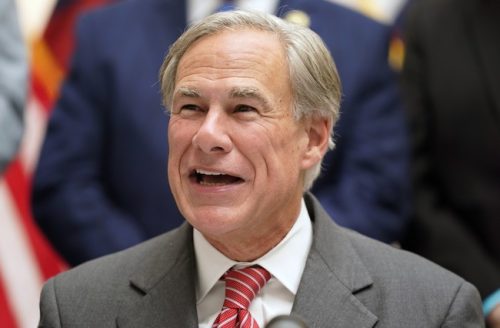Powell’s Books in Portland has landed back in headlines for decisions that cost them customers and staff, and the fallout now includes another round of layoffs. This piece walks through the earlier controversy over Andy Ngo’s book, how the store tried to appease protesters, and why those choices matter for a business in a blue city. It also covers the recent staff cuts and reactions that tie into broader concerns about political influence, unions, and local leadership. The tone is direct and critical of the choices that put politics ahead of customers and employees.
A few years ago, Powell’s Books made national headlines when it refused to sell Andy Ngo’s book, Unmasked: Inside Antifa’s Radical Plan to Destroy Democracy. That decision was a clear message: the store weighed the fear of confrontation over the principle of selling books to every customer. In a city where politics often colors business choices, that move sent an unmistakable signal to shoppers and authors alike.
This is the bookstore that banned my 2021 Antifa book and bestseller because of threats from Antifa. Their employees demanded the book be removed from shelves. https://t.co/LJ1Wt8GFtB
— Andy Ngo (@MrAndyNgo) October 31, 2025
Ngo has done tremendous work chronicling Antifa’s activities and reporting on members, including publishing their names and criminal records. Antifa, unsurprisingly, didn’t like Ngo’s book and staged a protest at the store. The protest became part of the public record about how Powell’s handled pressure from a violent fringe.
Who are the fascists again? That sharp question still stings because Portland tolerated street mobs that intimidate residents and businesses. Powell’s tried to walk a tightrope between stocking the book and avoiding more trouble, but opting out of selling a title for fear of protest is a poor look for any bookstore.
Powell’s explained the book’s path into inventory and their plans not to sell or promote it in a public thread on X, signaling how deeply the store tried to manage a volatile situation. Those public statements aimed to show a “full commitment to free speech” while simultaneously denying sales to a particular author. That contradiction left customers and free-speech advocates scratching their heads.
Portland’s reputation as a haven for radicals and activists has real economic consequences for local businesses. A store that bends to street pressure ends up alienating a swath of customers who expect consistent access to ideas, even those they find disagreeable. For Powell’s, the optics of choosing which voices get shelf space added to the strain on their brand.
Now Powell’s is announcing more layoffs, and the timing feels like the result of bad strategy, not bad luck. Running a business in a city that tolerates or even celebrates disruptive political groups requires a clear plan to serve customers without capitulating to intimidation. Powell’s record suggests they stumbled through that balance.
Here’s what was reported about the layoffs:
Powell’s Books has laid off even more employees after the company conducted previous rounds of layoffs earlier this year.
A spokesperson for Powell’s confirmed with KOIN 6 News that in October, the company laid off a total of 13 employees across its organization.
“These changes were not limited to our stores, the majority affected management and business services positions across departments,” said Jeremy Solly, a Powell’s spokesperson.
This month’s layoffs represent the company’s fourth round this year, with similar layoffs occurring in July, August and September, which impacted a total of 18 positions. This new round of layoffs brings the total number this year to 31 positions cut.
Imagine that: a business in a blue city that pretends to be tolerant but bows to violent pressure winds up cutting its staff. It’s not surprising to conservatives that catering to mobs didn’t create new customers or revenue for Powell’s. The practical lesson is simple — pandering to protesters won’t replace steady patrons who value open access to books and ideas.
You get the government you vote for, and you see the outcomes on the street and in stores. Portland’s leaders have long tolerated the chaos in the name of protest, and businesses there bear the cost while law-abiding citizens and employees pay the price. That dynamic doesn’t attract investment or steady retail traffic.
How did that work out for them? The layoffs are the blunt answer. Being reluctant to sell a controversial book might not be the sole reason for Powell’s struggles, but refusing to stand for free and open commerce certainly didn’t help. A bookstore that sells fewer titles because of fear of confrontation limits its own market.
Where unions go, jobs usually don’t, and over the years union pressures and political posturing have complicated operations for many businesses in the city. That reality mixes with management decisions and local politics to create an environment where layoffs become more likely. Powell’s recent rounds of cuts reflect that messy mix of internal and external pressures.
A little over a month ago, journalist Nick Kristof took offense at President Trump calling Portland “hell” and his retort praised the city’s Pinot Noir instead of addressing the violence. Flaky takes like that don’t fix supply-chain problems, security issues, or a shrinking customer base. Good management means selling books to everyone and protecting employees, not squaring off with sensible customers to score political points.
Editor’s Note: The Schumer Shutdown is here. Rather than put the American people first, Chuck Schumer and the radical Democrats forced a government shutdown for healthcare for illegals. They own this.
Help us continue to report the truth about the Schumer Shutdown. Use promo code POTUS47 to get 74% off your VIP membership.






